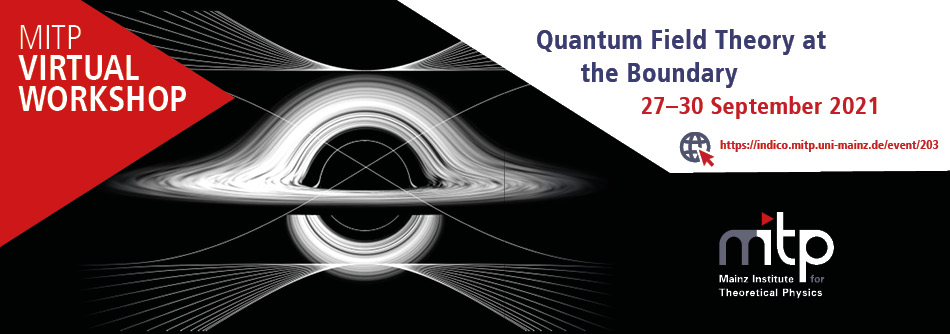Built around the concepts of boundary and defect in QFT, this Scientific Program will provide a stimulating framework where addressing fundamental questions from a wide spectrum of perspectives. The main scientific goals are to stimulate interactions and cross-field collaborations, and set an agenda for future research in the following main subjects:
Formal/theoretical area:
-
Classification of (super)conformal field theories with boundaries and defects via the classification of (super)conformal boundary conditions.
-
Use of tools like supersymmetry, integrability and conformal bootstrap to constrain and classify QFTs with boundaries and defects.
-
Quantum anomalies in the presence of boundaries and defects and their classification.
-
Dualities between BCFTs and DCFTs in various dimensions.
-
Dimensional flows in the presence of boundary/defect and role of the parent higher dimensional QFT in constraining the lower dimensional BCFT/DCFT.
-
Renormalization Group flows and generalization of c-theorems in the presence of boundaries/defects.
-
Renormalization Group interfaces/domain walls and their selection rules.
-
Role of BCFT/DCFT in string theory and holography to reveal novel phenomena.
Applied area:
-
Classification of topological insulators with the use of BCFT.
-
Novel approaches to the calculation of entanglement entropy using DCFT.
-
Use of DCFT to reveal the phase diagram of dense QCD with heavy quark impurities.
-
Applications of c-theorems of BCFT/DCFT to experimental systems.
-
Investigation of promising novel applications (ex: graphene, topological insulators).
